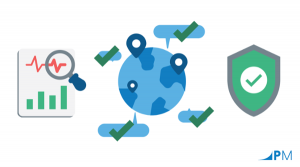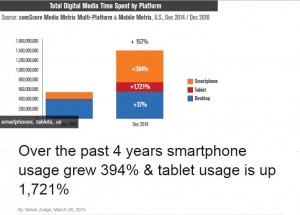It is not as hard as you think and the results will greatly justify the effort
I have written several times on this blog about forecasting a company’s balance sheet and the many benefits one gets from it. If this is so beneficial, then why is this so hard if not impossible to do using conventional methods and tools?
Firstly, if you are still working with a spreadsheet to create your budget and periodic re-forecast, then arriving at a reasonably accurate and complete balance sheet is an unrealistic expectation; there are just too many details that have to be passed to the balance sheet from the income statement forecasting activities, plus keeping track of activities that naturally occur only within balance sheet accounts.
To that you must program your various assumptions, that even for a small organization there are not enough rows in the spreadsheet to properly do it and the number of formulas, functions and links required to maintain it are just too numerous. And did I say “maintain”? It is the maintenance of these large spreadsheets that usually renders the whole exercise futile.
I’ve written here on spreadsheet use for planning and budgeting activities and why it is such a bad idea to use them (Forecasting a Balance Sheet in a Spreadsheet World, and Think you can rely on spreadsheets for financial applications?). Many compelling reasons exist against this practice as more and more finance managers and professionals have come to realize.
It is also a fact that many companies that use dedicated planning and budgeting software solutions do not budget their Balance Sheet or their Statement of Cash Flows, since the majority of these applications, despite being in a more robust, database environment, still behave like a collection of spreadsheets with required formulas and links, exposing their users to the many risks and challenges that spreadsheet users encounter.
Why is the balance sheet so important to forecast? Isn’t the P&L (income statement) sufficient? My answer is a definite no. Without a budgeted balance sheet company management cannot forecast the future financial health of the organization. The budgeted income statement allows the company to forecast most of its operations, such as sales with its associated costs, operating expenses, including payroll and its related expenses and anything one would normally see on an income statement.
However, unless there is a forecasted balance sheet, closely integrated to the budgeted income statement (think of your own ERP or accounting software where the balance sheet is seamlessly produced and follows the activities in the P&L, as well as directly receives entries into its own GL accounts) there is little value in just getting a complete and accurate forecast of your P&L.
Can you say with confidence that you’ll be able to execute the forecasted P&L? Will you have sufficient cash to purchase inventory for the projected growth or that new product line you are so eager to launch mid-year of your forecast? What about the additional workforce in your forecast? Will you have the cash to support these new hires? What about the three new positions in marketing and the five more inside sales representatives you determined are needed to achieve the sales targets?
Will you be able to finance this expansion? Will you have to sell additional equity in the business? Issue more debt? Sell assets? Will you have to use one, two or more of these methods and when, during the forecasted period?
As is clear here, none of these questions can be accurately and honestly answered without having visibility into a forecasted balance sheet. For this forecasted balance sheet to work well and be meaningful it must be tightly linked to your plan and budget in a way that every budget line affecting the forecasted income statement and all existing business rules must seamlessly affect the forecasted balance sheet.
In our next installment we will see a few examples and learn how this is all possible.
(152)






